Cache refers to a memory that can perform high-speed data exchange. It exchanges data with the CPU before the memory, so the speed is very fast. L1 Cache (level one cache) is the first level cache of the CPU. The capacity and structure of the built-in L1 cache have a greater impact on the performance of the CPU. However, the cache memory is composed of static RAM and has a complicated structure. When the CPU die area cannot be too large, the capacity of the L1 cache is not sufficient. Probably made too big. Generally, the capacity of L1 cache is usually 32-256KB. L2 Cache (second level cache) is the second level cache of the CPU, which is divided into internal and external chips. The internal on-chip L2 cache runs at the same speed as the main frequency, while the external L2 cache only runs at half the main frequency. The L2 cache capacity will also affect the performance of the CPU. The principle is that the bigger the better. The L2 cache of ordinary desktop CPUs is generally 128KB to 2MB or higher. The L2 cache of CPUs used in notebooks, servers and workstations can be up to 1MB- 3MB.
The cache is only a copy of a small amount of data in the memory, so when the CPU looks for data in the cache, it may not be found (because the data is not copied from the memory to the cache). At this time The CPU will still go to the memory to find data, which will slow down the system, but the CPU will copy the data to the cache so that it does not have to be retrieved from the memory next time. As time changes, the most frequently accessed data is not static. That is to say, the data that was not frequent just now needs to be accessed frequently now. The data that was the most frequently accessed just now is no longer frequent, so It is said that the data in the cache should be frequently replaced according to a certain algorithm, so as to ensure that the data in the cache is accessed most frequently.
<?php
namespace Cake\Cache;
use Cake\Cache\Engine\NullEngine;
use Cake\Core\ObjectRegistry;
use Cake\Core\StaticConfigTrait;
use InvalidArgumentException;
use RuntimeException;
class Cache
{
use StaticConfigTrait;
protected static $_dsnClassMap = [
'apc' => 'Cake\Cache\Engine\ApcEngine',
'file' => 'Cake\Cache\Engine\FileEngine',
'memcached' => 'Cake\Cache\Engine\MemcachedEngine',
'null' => 'Cake\Cache\Engine\NullEngine',
'redis' => 'Cake\Cache\Engine\RedisEngine',
'wincache' => 'Cake\Cache\Engine\WincacheEngine',
'xcache' => 'Cake\Cache\Engine\XcacheEngine',
];
protected static $_enabled = true;
protected static $_groups = [];
protected static $_registry;
public static function getRegistry()
{
if (!static::$_registry) {
static::$_registry = new CacheRegistry();
}
return static::$_registry;
}All resources on this site are contributed by netizens or reprinted by major download sites. Please check the integrity of the software yourself! All resources on this site are for learning reference only. Please do not use them for commercial purposes. Otherwise, you will be responsible for all consequences! If there is any infringement, please contact us to delete it. Contact information: admin@php.cn
Related Article
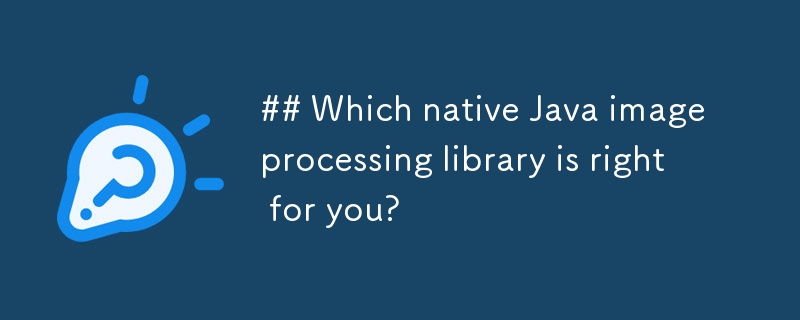 Which native Java image processing library is right for you?
Which native Java image processing library is right for you?
30 Oct 2024
Native Java Image Processing Libraries for High-Quality ResultsAs you have encountered limitations with ImageMagick and JAI, let's explore other...
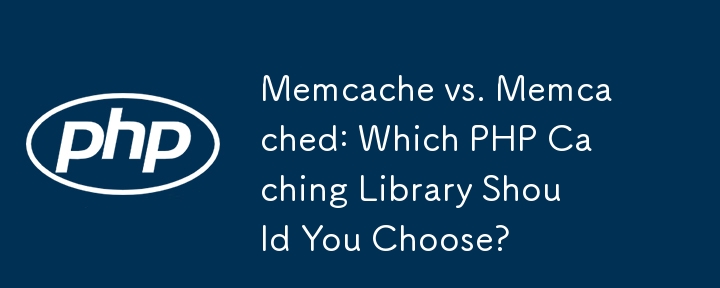 Memcache vs. Memcached: Which PHP Caching Library Should You Choose?
Memcache vs. Memcached: Which PHP Caching Library Should You Choose?
12 Nov 2024
Memcache vs. Memcached: Choosing the Right PHP Library for Your Cache NeedsIn the realm of PHP caching libraries, Memcache and Memcached stand out...
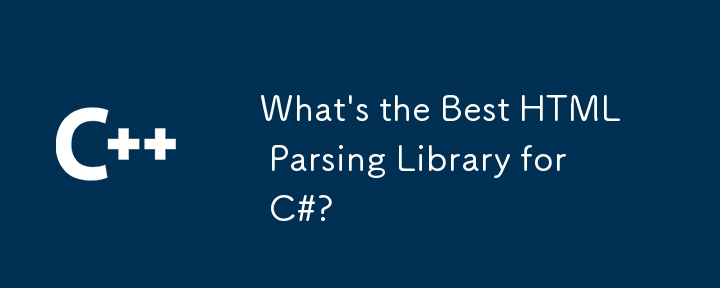 What's the Best HTML Parsing Library for C#?
What's the Best HTML Parsing Library for C#?
25 Jan 2025
What are the options for parsing HTML in C#?When parsing HTML in C#, generic XML parsing libraries can be used. However, there are also libraries...
 Which Arbitrary-Precision Math Library is Right for Large Integer Calculations?
Which Arbitrary-Precision Math Library is Right for Large Integer Calculations?
03 Nov 2024
Arbitrary-Precision Math Libraries: Essential Choices for Handling Large Integer CalculationsArbitrary-precision math libraries provide invaluable...
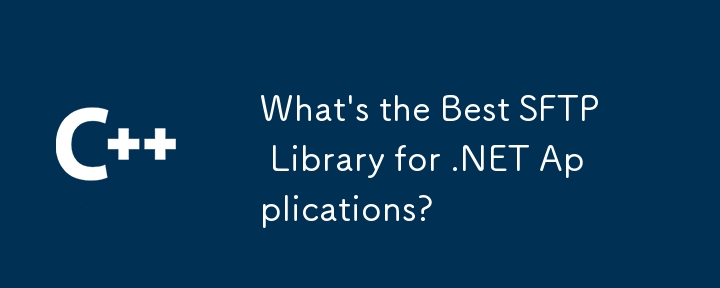 What's the Best SFTP Library for .NET Applications?
What's the Best SFTP Library for .NET Applications?
19 Jan 2025
SFTP Libraries for .NET: Exploring Recommended OptionsChoosing the right SFTP library can significantly impact the functionality and efficiency of...
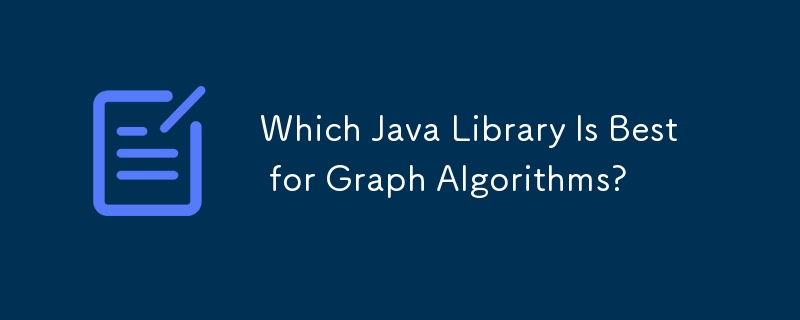 Which Java Library Is Best for Graph Algorithms?
Which Java Library Is Best for Graph Algorithms?
21 Nov 2024
Reliable Java Libraries for Graph AlgorithmsDetermining the most suitable Java library for graph algorithms can be challenging. This article...


Hot Tools

PHP library for dependency injection containers
PHP library for dependency injection containers
A collection of 50 excellent classic PHP algorithms
Classic PHP algorithm, learn excellent ideas and expand your thinking
Small PHP library for optimizing images
Small PHP library for optimizing images




